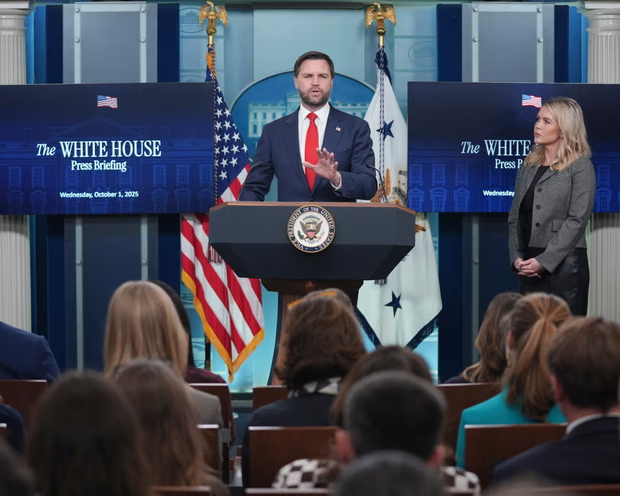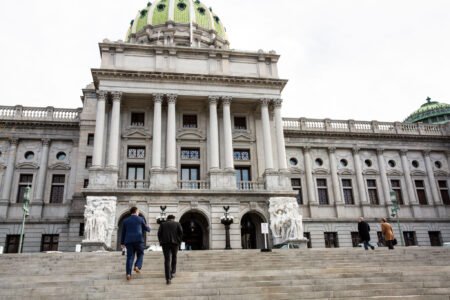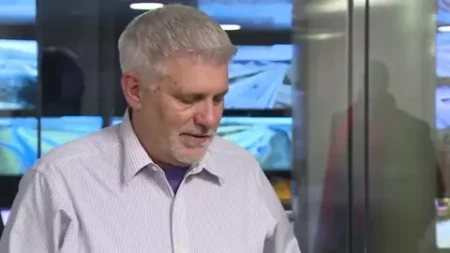U.S. President Donald Trump has signed an executive order that promises American protection for Qatar, a small but energy-rich Gulf nation. The order states that the United States will treat any attack on Qatar’s territory, sovereignty, or key infrastructure as a direct threat to U.S. peace and security.
The move, posted on the White House website two days after it was signed, marks a notable shift in America’s defense stance in the Middle East. It comes at a time of rising tensions in the region and highlights Qatar’s growing importance as a U.S. partner.
The wording of Trump’s order mirrors Article 5 of the NATO treaty, which declares that an attack on one ally is considered an attack on all. Trump promised that the U.S. would guarantee Qatar’s security and territorial integrity against outside aggression. He vowed that Washington would take diplomatic, economic, and if necessary, military steps to protect both American and Qatari interests. This means that the United States could be drawn into action if Qatar faces future assaults on its soil. Critics say the pledge places the U.S. in a position of responsibility usually reserved for treaty allies, not for countries outside formal defense agreements.
The timing of the order has raised further attention. Only weeks earlier, an Israeli airstrike targeting Hamas leaders killed six people, including a member of Qatar’s security forces. Under the new pledge, such an incident could have required a U.S. response. The executive order was signed on the same day that Israeli Prime Minister Benjamin Netanyahu visited the Oval Office. During his meeting, Netanyahu expressed regret over the casualties in Qatar, according to U.S. officials. The overlap of these events has fueled speculation about whether Trump’s decision was influenced by the strike.
Qatar welcomed the pledge, calling it a vital step in deepening its already strong partnership with the United States. The Gulf nation hosts the Al Udeid Air Base, the largest U.S. military facility in the Middle East. Thousands of American troops are stationed there, and the base plays a central role in regional security operations. Qatar has long balanced its strong relationship with Washington while also keeping open dialogue with groups such as Hamas and the Taliban. This strategy has made Qatar both a mediator in regional disputes and a controversial player in Gulf politics. Trump’s commitment could strengthen Qatar’s position as a key U.S. ally in the Gulf.
The announcement comes only months after Qatar’s royal family gave Trump a luxury Boeing 747-8 aircraft. The plane was gifted for use as Air Force One during his presidency, with the understanding that it would later be transferred to his presidential library foundation. The timing of this gift, followed by the defense pledge, has sparked debate about whether personal benefits played a role in shaping U.S. policy. Supporters argue that the order reflects Qatar’s strategic value to Washington rather than personal influence.
Qatar is one of the world’s leading exporters of natural gas, giving it major influence in global energy markets. Its cooperation is seen as vital for maintaining stability in the Gulf, especially amid ongoing tensions with Iran. Trump’s new commitment signals to rivals that the United States will stand firmly by its Gulf partners, even beyond traditional treaty frameworks.
By extending NATO-like protection to Qatar, Trump has broadened the scope of American defense obligations. This raises questions about how future U.S. administrations will manage such promises. Some experts warn that these commitments could pull the United States deeper into regional conflicts, while others see it as a way to deter aggression and project strength in a volatile region.
What is clear is that Trump’s defense pledge to Qatar represents a bold turn in American foreign policy. Whether it leads to greater stability in the Middle East or deeper U.S. involvement in regional disputes will depend on how events unfold in the years ahead.







